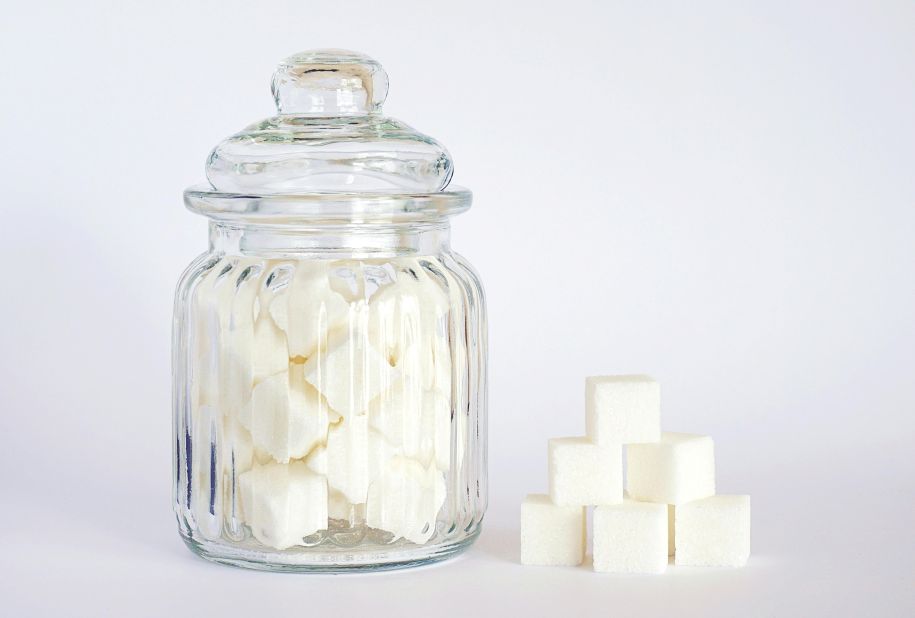
Many sources say that women should only be consuming 25 grams (or 5 teaspoons) of added sugar per day and men 36 grams. A 20-ounce bottle of soda contains 64 grams! It’s no wonder diabetes is rampant and affects more and more children each year.
As a matter of fact, 352,000 youth and children younger than 20 years old have diagnosed diabetes (CDC.) More than 38 million Americans have diabetes out of a population of 335 million.
Excessive amounts of sugar can lead to obesity, especially coupled with a sedentary lifestyle. It is also known to cause inflammation in the body. Harvard Health referenced a study in JAMA that determined that sugar could have an adverse effect on the heart. Blood pressure increases with high sugar consumption. Energy spikes and crashes are common.
Extensive discussions have emerged regarding the addictive nature of sugar and the deliberate increase of its inclusion in processed foods by manufacturers. Oftentimes, shoppers don’t even realize this. The reality is that sugar tastes good. It enhances flavor and boosts overall appeal. Here are signs you may be eating too much sugar:
Weight gain
Low energy level
Acne
Sweet cravings
Irritability
Joint pain
Sleep issues
Excessive thirst
Brain fog
The United States is number one when it comes to consuming ultra-processed foods, which often contain added sugar. The University of Utah explains that companies rarely state that they’ve added sugar, so you have to read labels and do a quick calculation of sugar per serving. Here are some foods that contain added sugar where you’d least expect it:
Condiments
Sauces
Bread
Nut butter
Salad dressing
Cereals
Oatmeal
Beverages
Packaged foods
Storebought baked goods
Yogurt
Granola bars
Fruit cups
Here are several interesting statistics about sugar:
*Sugar is considered a preservative
*The average American eats 100+ pounds of sugar per year (USDA)
*Coca-Cola is the world’s biggest buyer of sugar
*Brazil, India, Thailand, China, and US are the top 5 sugar producers (Investopedia)
*Sugar is used in medicines to mask the bitter taste
*The first sugar cube was created in 1843 by Jakub Krystof Rad in the Czech Republic
*Sugar cane stalks can reach 30 feet high (World Record is 41 feet tall!)
*Sugar was one of the first commodities dating back to 8000 BC in New Guinea
*High blood sugar can adversely affect egg quality and fertility (Mayo Clinic)
Sugar sweetened beverages (SSB) are associated with less healthy behaviors. SSB includes soda, fruit drinks, sports drinks, energy drinks, sweetened waters, and coffee/tea beverages with added sugar.
The NIH states that low income and education are particularly vulnerable to diets with added sugar. There is a correlation between a decrease in SSB intake and an increase in income. Low-income communities have the highest consumption of SSB.
Early life sugar intake affects chronic disease risk. High consumption can also lead to premature aging of cells and tissues. Medical News Today explains that excessive sugar intake increases the production of free radicals, leading to oxidative damage to DNA, proteins, and lipids. There is also a link between sugar and Alzheimer’s.
There are plenty of healthier substitutes that include coconut sugar, agave nectar, maple syrup, molasses, monk fruit, and stevia. These have a slightly lower glycemic index but should still be eaten in moderation.
Indulging in a sweet treat occasionally is perfectly fine. However, eating ultra sweet desserts regularly is an undesirable habit. It’s a good idea to start minimizing the sugar gradually when baking from scratch. Generally speaking, cooking and baking at home are always better.
Be mindful and take extra time when it comes to reading labels. Focusing on the serving size is important and can make all the difference when it comes to sugar consumption. Stop buying sugary beverages and start drinking more water. You’ll see a huge improvement in your health!
Sign up for my free monthly newsletter at the bottom of my blog or reach out to Kim anytime at nourishandflex@gmail.com
Photo by: Suzy Hazelwood

